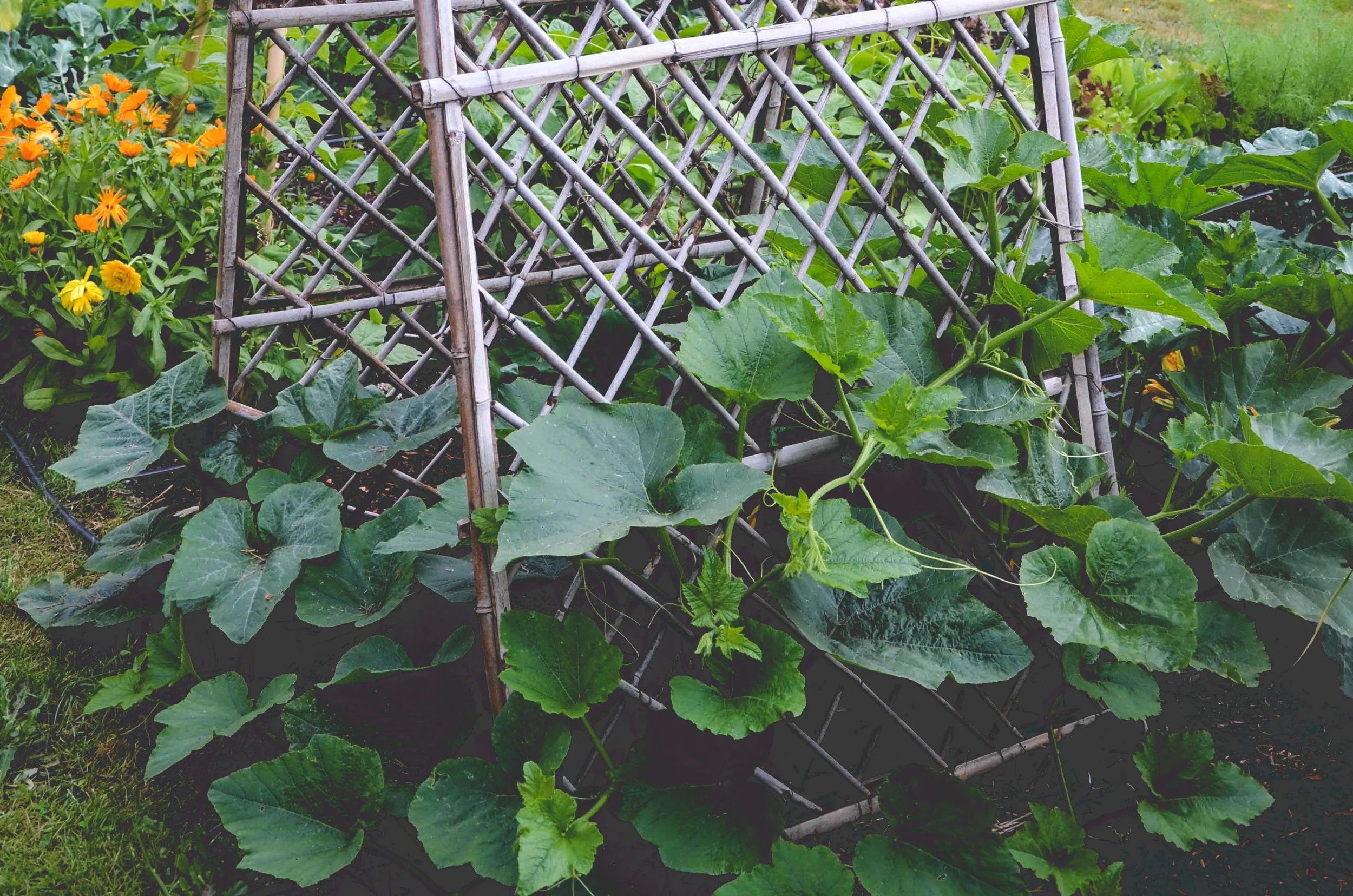Spoiler Alert: Winter squash should be planted in the spring! Read on for more information.
One of the most common requests we get when helping to plant fall gardens is for winter squash. As summer starts to come to an end, many people start to imagine themselves in the fall, curling up with a good book and a warm cup of squash soup. Unfortunately, by late summer we’ve already missed our opportunity to plant winter squash.
The “winter” in winter squash, refers to the time of year the crop is eaten. The term harkens back to a time when hardy kinfolk were required to put up a supply of storage crops in order to make it through the cold, dark months of the year. Winter squash is a term that typically refers to storage squashes (butternut, spaghetti, etc.) and pumpkins.
Many winter squash varieties take around 100 days to mature. It is crucial to get them in the ground early in the season so the plants have plenty of time to grow and put on fruit during the warm summer months.
Winter squash can be set out from transplants or direct-seeded into the garden. They are sensitive to disturbances in their roots so should be transplanted very carefully. If direct-seeding, sow 3 seeds in each hole and thin down to one plant when seedlings emerge. Space plants at least 3 feet apart.
There are both vining and bush types of winter squash. If you are planting a vining variety and are short on space, consider planting towards the edge of a bed so the plant can sprawl into the pathway instead of taking over valuable garden bed space.
Winter squash are susceptible to powdery mildew. We recommend preventatively spraying with our Organic Anti-fungal Spray, each week through the season. This spray can be made easily from common household items and can provide you with healthier, better looking and more productive plants.
So, take this early warning to do some winter squash research, pick varieties and get them in the ground on time for a bountiful fall harvest. Our favorite types include: New England Pie Pumpkin, Honey Bear Acorn squash and Delicata.



